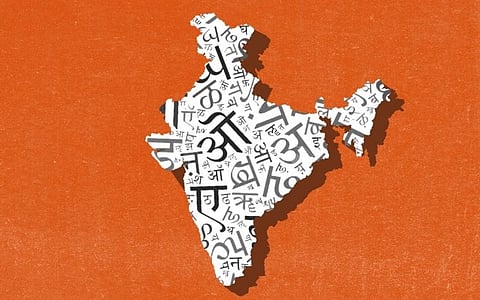

The verbiage of official and legal communication in our country must be simplified for all languages so that the common man can comprehend it, writes VIKRAM HEGDE.
—————
"IS this Latin?" asked the Supreme Court. The exclamation came when the Court was hearing an appeal against a judgment of the Himachal Pradesh High Court. The judgment had such complicated verbiage that even the judges of the Supreme Court, who are well versed in legal jargon, were unable to comprehend it.
While this may have been a rare occurrence for the judges, many routine legal and official documents are beyond comprehension for common people. Indeed, for 90 per cent of Indians, who do not speak English, the judgments might as well be in Greek or Latin.
Once we recognize that official work is carried out not only in English but also in the many tongues of our diverse country, it is only logical that we take stock of the steps towards plain communication in languages other than English.
The push for plain language may come from different sources and carry a different fervour in each language. They may also have different goals and seek to solve different problems. But the similarity in the drive for simpler communication is notable.
Also read: Cultivating plain language in law
A movement that has its genesis in the works of some Kannada linguistic experts and has been pursued by groups of dedicated persons for several years has recently been getting wider attention and recognition. The "Ellara Kannada" (Everybody's Kannada) movement seeks to simplify Kannada used in formal, educational, and commercial contexts and bring it closer to the Kannada spoken by the average Kannadiga.
“The "Important Directions Regarding Official Language Policy" make it clear that popular Hindi words, as opposed to antiquated or clunkily technical words, should be used so that citizens can access government policies in simple Hindi.
Some aspects of the movement, such as its stance against excessive Sanskritization of Kannada, have at times drawn the ire of people who claim it is a political move. Similarly, the demand of its proponents for a greater allocation of resources to Kannada, and against neglect of development of Kannada, have also resulted in confrontations of an ideological nature. But the motivation of the Ellara Kannada movement is clear to its long term observers. At its core, the movement wants to make it easy for Kannadigas to access knowledge, entertainment, and transact in Kannada.
The Department of Official Languages of the Government of India pursues the goals set forth in the Official Language Resolution of January 18, 1968 adopted by both houses of Parliament, viz. "accelerating the spread and development of Hindi and its progressive use for various official purposes of the Union". The "Important Directions Regarding Official Language Policy" detailed in its annual programme make it clear that popular Hindi words, as opposed to antiquated or clunkily technical words, should be used so that citizens can access government policies in simple Hindi. The purpose of such simple access is to "make the official language not a hindrance but a help in the propagation of Hindi."
Various Official Memoranda over the years have identified one of the major reasons for complexity in official Hindi, as translation from English. The challenge there is to simplify translations without diluting the original meaning.
The legal history of North India lingers on in the first information reports [FIR] registered by police, which use several Urdu and Persian words. These words have fallen out of common usage and their meaning is not readily clear to citizens. This came to the notice of the Delhi High Court in Vishalakshi Goel vs. Union of India (2019). The court therefore published a list of the archaic terms that it sought to replace, and their simple Hindi and English equivalents. The court directed the police to stop using complex terms and use simpler alternatives in FIRs.
The Court was also careful to note that its judgment is not construed as a direction against Urdu. Indeed, usage of simple everyday Urdu words was encouraged by the court, but it made clear that "obscure and archaic expressions can find no place in an FIR".
The examples above denote the various sources of complexity in language. They also show the diversity among the entities working towards simplification.
Whatever the solution to these specific problems may be, the underlying principle in the drive for plain language is well articulated by one of the wealthiest men in the world. American investor Warren Buffett heads a large business conglomerate. Its investments are varied and complex. Yet, his annual letters to shareholders are notable for their simplicity.
“The legal history of North India lingers on in the first information reports [FIR] registered by police, which use several Urdu and Persian words. These words have fallen out of common usage and their meaning is not readily clear to citizens.
Buffett says he keeps his sisters in mind when he writes these letters. They are ladies of reasonable intelligence but are not involved in the business on a day to day basis. They may not be familiar with technical terms or specialized contexts, but can understand what is plainly written.
Whatever the language of official and legal communication, the writer must have, what Buffett calls, "a sincere intention to inform."
(Vikram Hegde is an advocate on record at the Supreme Court of India. The views expressed are personal.)